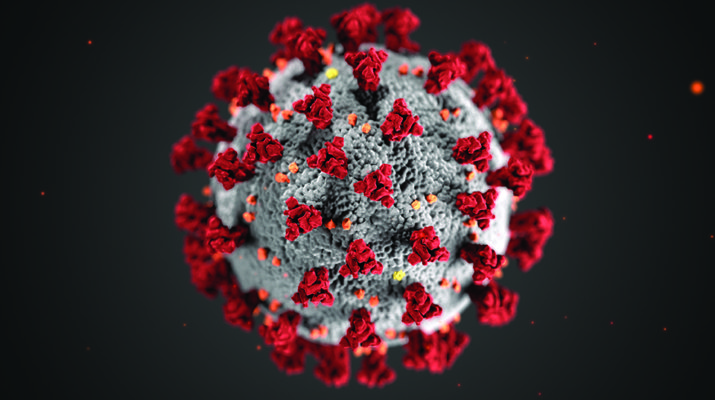The Panhandle saw a large increase in the number of COVID cases as an additional 368 cases were reported since Sept. 20.
Box Butte County saw 58 new cases, the second largest number among counties in the Panhandle. Since testing began in March 2020, Box Butte County has had 1,293 cases, according to information from the Department of Health and Human Services. As of Tuesday, 42 percent of Box Butte County’s citizens ages 12 and older have been vaccinated.
During a briefing hosted by Unified Command on Monday, it was noted that Box Butte County currently has the highest case rate per 100,000 for the past 14 days among the Panhandle’s counties. In the past 14 days, there have been 111 cases in Box Butte County.
The Panhandle as a whole has had a total of 11,133 cases since March 2020. As of Tuesday, there were 22 active hospitalizations. Officials with COVID-19 Unified Command are urging people to get vaccinated as only 37 percent of Panhandle residents have received the vaccine.
Vaccinations are available throughout the Panhandle. For residents of Box Butte and Grant Counties walk-ins are welcome at Dave’s Pharmacy in Alliance and Hemingford Monday through Friday from 8 a.m. to 5:30 p.m., with the Pfizer vaccine available from 2 to 5:30 p.m., and at Alliance Community Pharmacy Monday through Friday from 7:30 a.m. to 6 p.m.
Dr. David Brett-Major spoke during the Unified Command briefing on Monday. He is a professor at the University of Nebraska Medical Center, College of Public Health in the Department of Epidemiology. He noted, based on the case information presented in the Panhandle, COVID can affect people of all ages. He also noted the high case rate per 100,000 in the region, citing information from the summer of 2020. He related the experience to driving.
“You unfortunately are not alone,” said Dr. Brett-Major. “Your rates are about 50 times higher than what we were worried about a year ago. At less than five per 100,000, we were driving on a street where our kids live. At your kind of numbers, and numbers we’re experiencing in lots of places in the country, we really are on I-80, and we’re really going 80-85 miles per hour. It’s as though we went back to our neighborhood home, and were back on our neighborhood street, and we got so used to driving 85 miles per hour, that somehow it seems okay that we’re driving in our neighborhood at 85 miles per hour. I have to say, I just don’t understand it.”
Dr. Brett-Major cited information from the CDC regarding deaths from COVID.
“We’re almost at 700,000 deaths in the last year and a half from COVID-19, which puts us, now, double the death rate of the Civil War, over those four and a half years. It puts us double the death rate of U.S. persons in World War I over those years. We’re rapidly striving to reach levels that we had in World War II. So, we have now had in this country, that kind of event,” said Dr. Brett-Major.
Dr. Brett-Major connected the rise in COVID cases to the time when schools began the new school year. He noted that deaths from COVID are preventable. He explained that the Panhandle is below the vaccination rate in the state of Nebraska and nationally.
“It is important for everybody to be mindful of their personal risks, and read the information about vaccines carefully and make a personal choice,” Dr. Brett-Major said. “I think most people would make that choice for vaccination, given the opportunity to really sit down and think about that mindfully. Vaccines make such a large impact in hospitalization and death, and on the decrease of preventable death, that it really compels, I think all of us, to, sadly, to not be lazy in the conversation about whether or not to have vaccines, but to really have the opportunity to review the required documentation that must be available to people before they take the vaccine, for their information and their personal risk assessment.”
Addressing a question about masks, Dr. Brett-Major explained that many people in other countries choose to wear masks during flu season as a courtesy.
“We have been complacent about influenza risk for a very long time,” said. Dr. Brett-Major. “So, in the fall of 2019, I was at a national meeting, and the head of the Institute for Infectious Diseases for NIH came to talk, and he outlined three priorities for NIH moving forward in the next several years. In that group of the top three priorities was the universal influenza vaccine, a vaccine that didn’t have to be changed every season and had even higher performance. The influenza vaccine is very important for decreasing preventable hospitalization and death, absolutely, but it has a long way to go to be better.
“I think masks are something to think about,” Dr. Brett-Major said. “We should be thinking about whether or not we have respiratory symptoms. We should be thinking about whether or not we’re sick, and we should be thinking about whether, if we’re sick, we ought to be around others, whether that’s school or otherwise. So, I think masks are something to think about. They are a tool for civility, and they are a tool for practical safety.”

